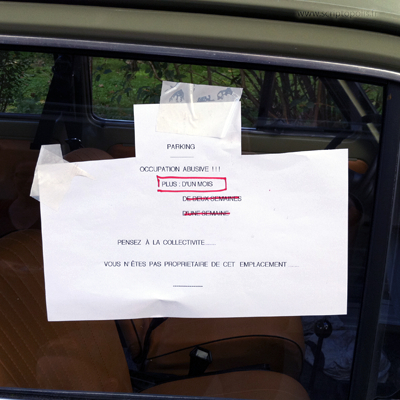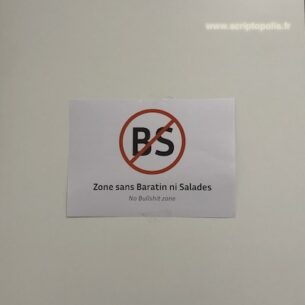Moral entrepreneurs

It has been happening for several months. Initially, the wheels of some cars were used as targets: a white line on the tire and the tar meant that the vehicle did not move for quite some time. It has been too long for sure. Residents regularly found parking lots with more traces on the floor than usually. Then, the inscriptions have become more precise: longer than a week immobility being reported on printed sheets, taped to each car. And to give more weight to this act, the inscription was signed by the householders’ association at the bottom of the page. The residents were astonished and the householders’ association was surprised itself. More recently, it has become even more explicit: one car was found riddled with sheets of paper reading “unauthorized occupation”.
No matter who is the author. He or she, alone or in groups, what matters is to assert a fairness principle. As parking lots are not assigned, every resident has the same right to dispose of them. For most of the residents, a tacit management of parking lots is enough. But for the rest of them, the occupation of space requires special attention. The regular turnover of vehicles is set up as a “community” public good, the parking time being introduced as an index (“one week, two weeks, more than a month”), and the poster acts as a reminder of an economic and moral order.






